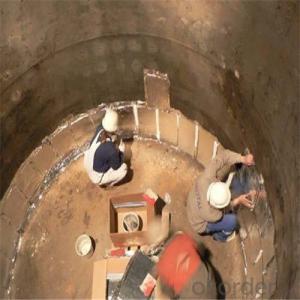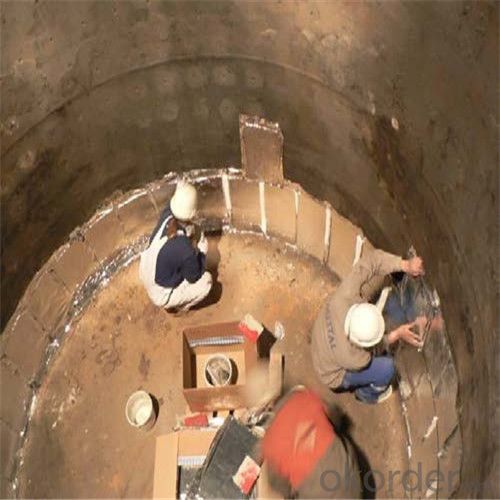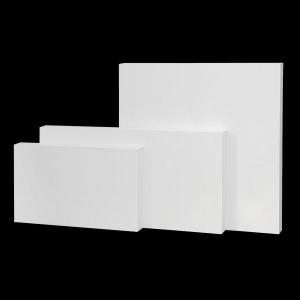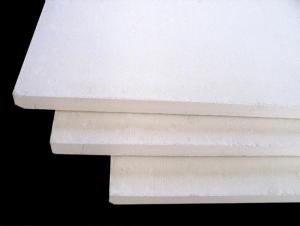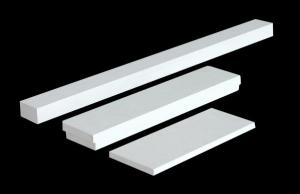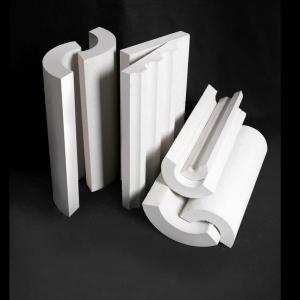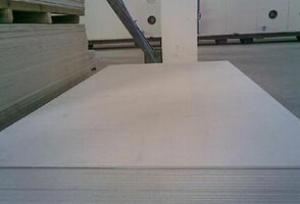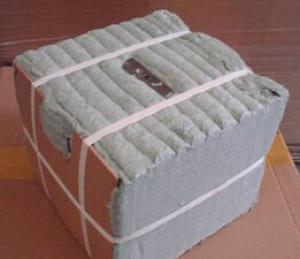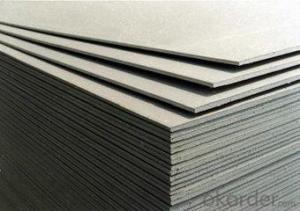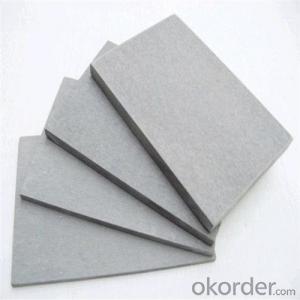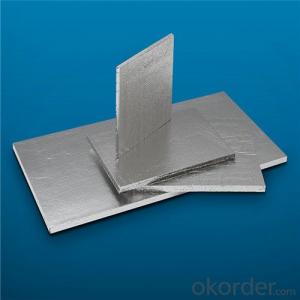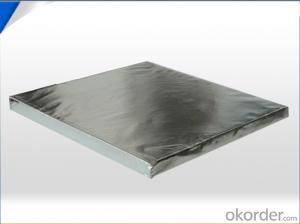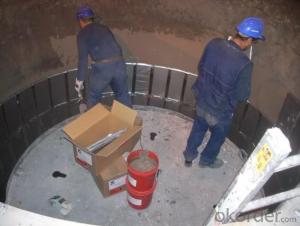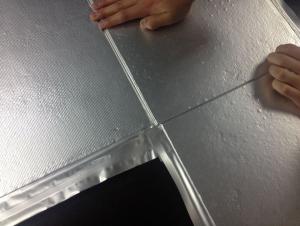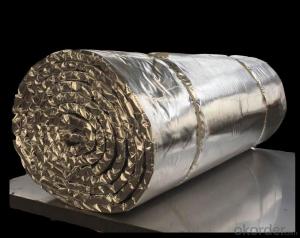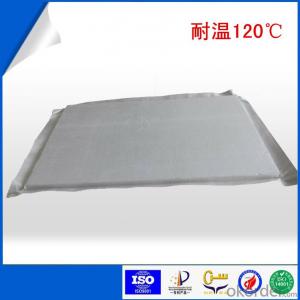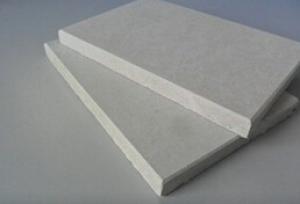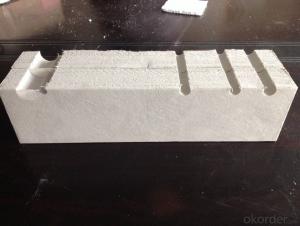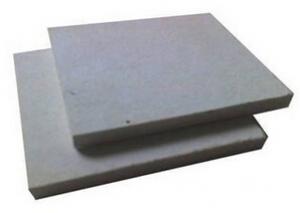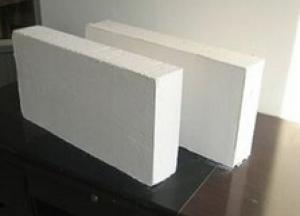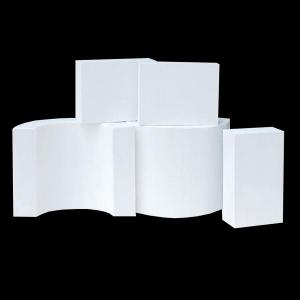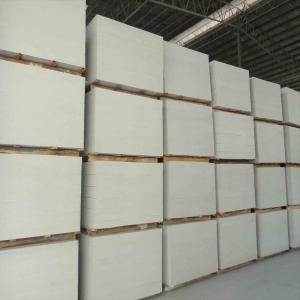Microporous Insulation Board Available in a 5mm, 7mm and 10mm Thickness
- Loading Port:
- Qingdao
- Payment Terms:
- TT or LC
- Min Order Qty:
- 1 kg
- Supply Capability:
- 2000000 kg/month
OKorder Service Pledge
OKorder Financial Service
You Might Also Like
General Information of Microporous Insulation Board
CMAX Microporous Insulation Board is specially designed for steel industry & metallurgy with very good thermal and mechanical properties. The formulation is an opacified blend of filament reinforced pyrogenic silica. The coverings is water repellent to assure the stability of the microporous board when moisture may occur due to castables, mortar etc.
Working & Processing of Microporous Insulation Board
CMAX Microporous Insulation Board can be shaped easily with a simple cutter and taped off with aluminum tape. The microporous insulation board can be fixed in place with the same adhesives that are used for refractory lining.
Image of Microporous Insulation Board
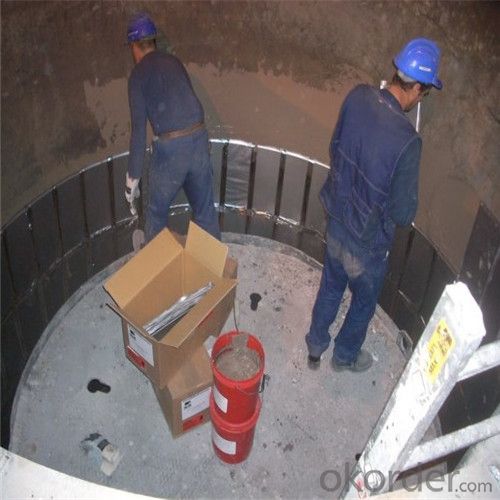
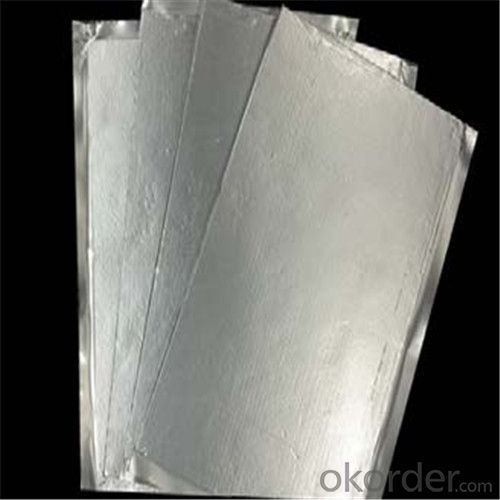
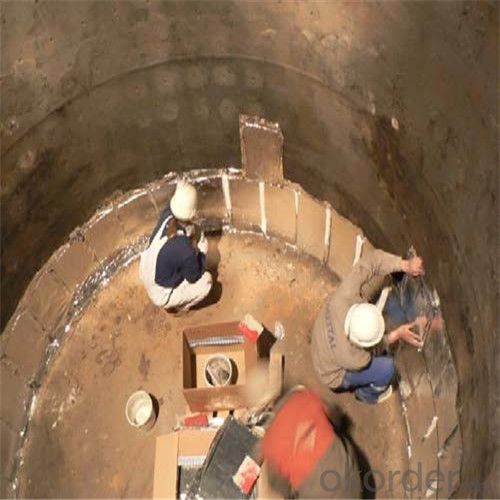
Features of Microporous Insulation Board
Extremely low thermal conductivity
High compressive strength
High thermal stability
Environment protection
Easy to handle
No harmful inhalable fibers
Resist most chemical attacks
Free of organic binders
Non combustible
Application of Microporous Insulation Board
Ladle
Torpedo Ladle
EAF
Degassers
Cement Rotary Kiln
Ceramic Firing Kiln
Aluminum Melting and Holding Furnace and so on
Technical Data of Microporous Insulation Board
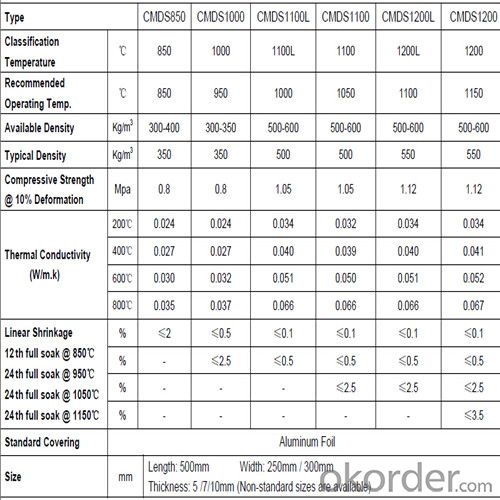
Why Choose Us
l We are a government owned company with ISO certificate.
l We are listed in Global Fortune 500 with D & B report.
l We have more than 11 refractory production facilities and bases across China. We have a wide products range, such as ceramic fiber products (ceramic fiber blanket, module, board, paper, bulk), ceramic fiber textile (ceramic fiber rope, cloth, tape, yarn) etc, refractory brick (fireclay brick, high alumina brick, silica brick, magnesia brick etc), monolithic refractory materials, insulating fire brick, calcium silicate board, mica sheet, steel fiber. You can find various products here, and we can combine the light weight ceramic fiber products with the heavy weight refractory brick in one container delivery, then save the sea freight for you.
l We have strict materials selecting system and quality control system. We have the ability to take responsibility for your orders and product quality.
FAQ
Q1: How do you control the products quality?
A1: With strict quality control system throughout the materials selection and production process, our refractory and ceramic fiber products quality is effectively controlled to meet customer requirements.
From the raw materials selecting, our quality control begin. The quality certificates of raw materials are required and each batch will be tested before using. During production, the quality control are conducted by workers and then each piece will be sorted and examined by quality supervis
Q2: What`s the lead time for my order?
A2: It depends on customers’ requirements and our production schedule. And usually we need 30-60 days for refractory bricks,10-25 days for unshaped refractory materials and 10-20 days for ceramic fiber blankets.
Q3: Can you offer Door-to-Door delivery?
A3: Yes, but only for some countries such us U.S., UAE, Saudi Arabia, Iran, and Russia, etc.
Q4: What is the minimum quantity?
A4: There is no minimum order quantity. Depending on the item and processing, there may be a minimum production required, however we can offer a quotation based only on the quantity you need.
Q5: Can you give me a brief introduction of the application of your products?
A5: CNBM (China National Building Material) core refractory business comprises the production, sale and installation of high-grade refractory products, the development and implementation of customized system solutions as well as rendering outstanding services for the key industries in Glass, Iron& Steel, Petrochemical, Cement, Ceramic and Nonferrous Metals.
- Q: What kind of insulation material can withstand 350-600 degrees of high temperature?
- Suggest that you refer to the above two data to choose from, select only from the temperature, you can use
- Q: Which is better, asbestos free calcium silicate and aluminium silicate refractory fiber?
- Aluminum silicate fiber can be divided into many kinds according to the aluminum content, the use temperature range is relatively large, the heat insulation property is good, but the price is more expensive.
- Q: What is the maximum temperature at which the glass is cured?
- Glass is softened at a temperature of 600 degrees. When making glass, but ordinary alcohol lamp is enough to soften it. Glass is not crystal. The softening point of lead glass is 500 degrees. The main component of ordinary glass is CaO: Na2O: 6SiO2, which can be softened by fire. In addition to the ordinary glass, glass wire, alcohol burner 1000 degree glass has no definite melting point and freezing point, in softening products can be made into any shape, so there is no fixed melting point, clarification, fluoride special glass based raw materials, slightly higher than 1200 DEG C melting, but the softening point, as well as borate, limestone, mixed melt in glass kiln.
- Q: What is the difference between calcium silicate board and cement fiber board?
- Fiber cement pressure plate is cement, fiber and other raw materials, after pulping, molding, thousands of tons of press. Calcium silicate board is made of silica and calcium plus fibrous material after pulping and formed by chemical reaction in high temperature environment. Therefore, the difference between the two is very large, mainly in the following aspects:1, from raw materials, calcium silicate board and fiber cement pressure plate difference is mainly calcium silicate board cement content is little, with sand and fly ash instead of cement.2, fiber cement pressure plate is a physical product, calcium silicate board is a chemical product.3, fiber cement pressure plate has press, calcium silicate board has no press; calcium silicate board has autoclaved Fu, fiber cement pressure plate no..4. The density of the fiber cement pressure plate is higher than that of the calcium silicate board, the density of the fiber cement pressure plate is above 1.5g/cm3, and the density of the calcium silicate board is about 1.2g/cm3.5, fiber cement pressure plate thickness can do 2.5-100mm, calcium silicate board can not do less than 4mm of ultra-thin plates and more than 30mm super thick plate, general calcium silicate board manufacturers can only do 6-12mm thickness.6, the normal production of fiber cement pressure plate color is cement color, calcium silicate board color is white.
- Q: What's the difference between white carbon and carbon black? Can they be replaced?
- Carbon black is the floorboard of white powder X- ray of amorphous silica and silicate products, mainly refers to the precipitated silica, fumed silica, ultrafine silica gel and gel, including powder synthetic aluminium silicate and calcium silicate. Silica is a porous material, its composition by SiO2 nH2O, where nH2O is there the surface hydroxyl form. Soluble in caustic and hydrofluoric acid, insoluble in water, solvent and acid (except hydrofluoric acid). High temperature resistant, non flammable, tasteless, odorless, has the very good electric insulation.
- Q: What heat preservation material is used for thermal insulation of steam pipe in power plant? How thick is the bag? Please advise!
- Steam pipe in power plant thermal insulation rock wool board thickness, according to the temperature in the pipeline to choose, the higher the temperature insulation thickness is generally 80 to 150 mm.
- Q: What are the new energy-saving building materials? What's new?
- Heat insulation materials and insulation materials collectively referred to as thermal insulation materials.The commonly used thermal insulation material: mineral wool, rock wool, glass wool (in rock, slag as the main raw material, by high temperature melting, made by centrifugal methods such as cotton and thermosetting resin binder insulation products. ) foam plastics and porous polymers, expanded perlite and their products, calcium silicate insulation products, all kinds of composite insulation materials.Application of thermal insulation materials:(1) it is mainly used for thermal insulation of buildings, walls and roofs;(2) thermal insulation of thermal equipment and thermal pipe;(3) a large number of refrigerators and freezers are also used.
- Q: What are the raw materials of cement products? What's the function?
- Water is necessary for the production of cement products, the role of water is to cement hydration. Generally, the water cement ratio of concrete is 0.40~0.65. If the water is too large, it will leave a hole in the concrete, which will affect the strength, density and durability of the concrete and even cause water leakage.
- Q: What are the main use of lime?
- Lime milk and mortar, slaked lime or lime paste, with lots of paint. Lime mortar or slaked lime powder can be used to prepare lime mortar or cement lime mixture mortar for masonry or plastering engineering.
- Q: What is the best price for the use of calcium silicate ceiling?
- Water will melt or become yellow, mildew. So if you choose their ceiling, you must first deal with the roof leak. Calcium silicate board with artificial and material prices of about 22 square meters, mainly for office space, and residential corridors and other public places decoration. Integrated ceiling is not afraid of water.
Send your message to us
Microporous Insulation Board Available in a 5mm, 7mm and 10mm Thickness
- Loading Port:
- Qingdao
- Payment Terms:
- TT or LC
- Min Order Qty:
- 1 kg
- Supply Capability:
- 2000000 kg/month
OKorder Service Pledge
OKorder Financial Service
Similar products
Hot products
Hot Searches
